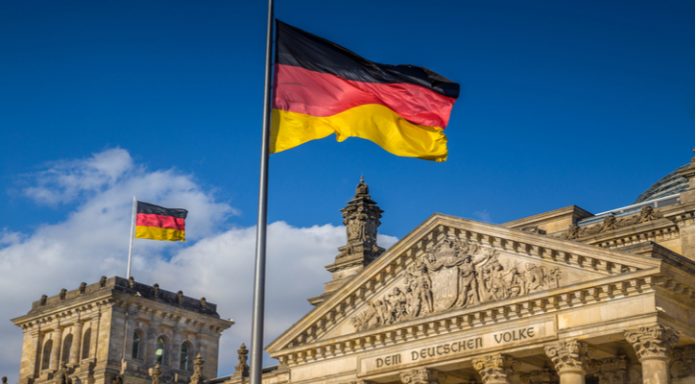- Pound (GBP) falls after gains yesterday
- UK shop inflation cooled
- Euro (EUR) looks to the eurozone GDP data
- Germany Q4 GDP contracted -0.2%
The Pound Euro (GBP/EUR) exchange rate is falling, giving back yesterday’s gains. The pair rose +0.18% in the previous session, settling on Monday at €1.1728 and trading in a range between €1.1697 – €1.1749. At 09:00 UTC, GBP/EUR trades -0.18% at €1.1711.
The pound is heading lower as investors look ahead to the Bank of England interest rate decision. Thursday.
The pound is trading in a narrow range against most of its peers amid speculation that the Bank of England could begin cutting interest rates a little earlier than previously thought.
However, UK inflation is still double the central bank’s target. However, independent forecasters predict that consumer prices will drop much faster than expected in the UK and could fall to 2% by April 2024.
Meanwhile, data showed British grocery price inflation declined at a slower pace at the start of 2024 as the number of items on promotion fell.
According to industry data from market researcher Kantar, annual grocery price inflation was 6.8%, down from 6.9% the previous four weeks.
However Kantar said that there this was not so much related to the impact of disruption in the Red Sea affecting shipping but more a matter of retailers not promoting as aggressively at the start of the new year.
Separately, data from the British Retail Consortium showed that overall prices in UK shops rose at the slowest annual pace since May 2022. Adding to signs that inflationary pressures are easing ahead of this week’s Bank of England interest rate decision.
The euro is rising despite German GDP data showing that the eurozone’s largest economy fell into a recession at the end of 2024.
German GDP came in as expected at -0.2% contraction quarter on quarter in Q4. This was after -0.3% contraction in Q3.
The data highlights weakness in the eurozone’s largest economy and could mean that the ECB may start to cut interest rates sooner.
Attention will now turn to Eurozone GDP data, which is also expected to show that the region fell into recession. And the final three months of 202





